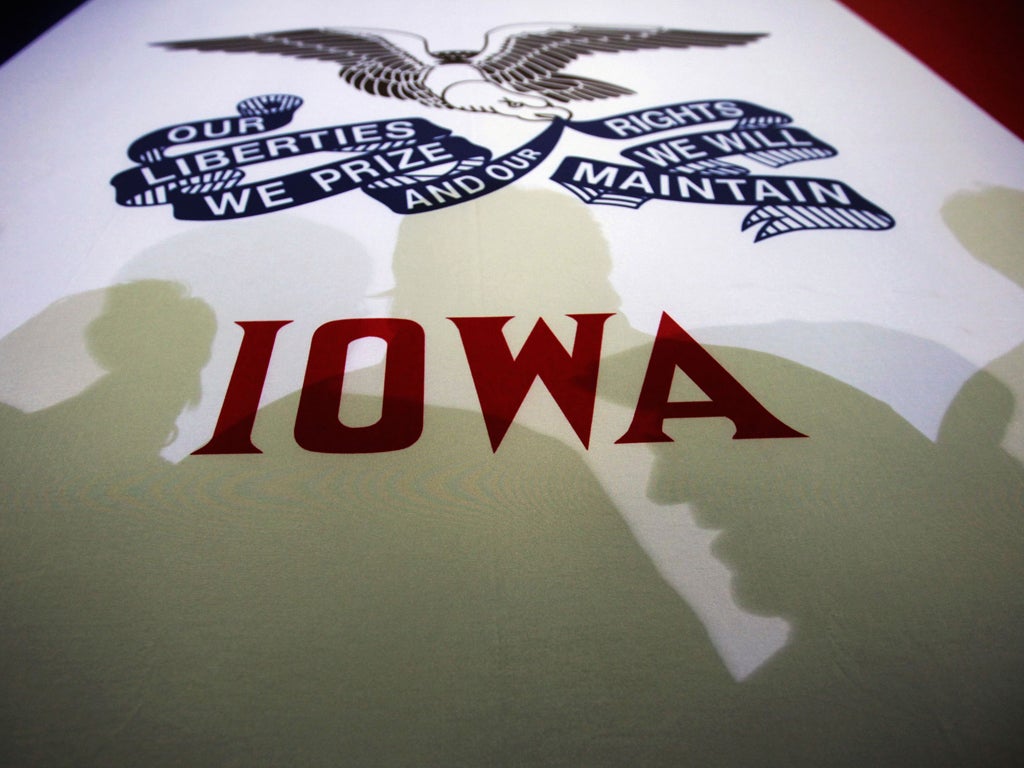Iowa judge upholds absentee voter ID law that could lower turnout
The law at issue bars local authorities from automatically filling in missing info on absentee ballot applications

Your support helps us to tell the story
From reproductive rights to climate change to Big Tech, The Independent is on the ground when the story is developing. Whether it's investigating the financials of Elon Musk's pro-Trump PAC or producing our latest documentary, 'The A Word', which shines a light on the American women fighting for reproductive rights, we know how important it is to parse out the facts from the messaging.
At such a critical moment in US history, we need reporters on the ground. Your donation allows us to keep sending journalists to speak to both sides of the story.
The Independent is trusted by Americans across the entire political spectrum. And unlike many other quality news outlets, we choose not to lock Americans out of our reporting and analysis with paywalls. We believe quality journalism should be available to everyone, paid for by those who can afford it.
Your support makes all the difference.An Iowa judge has upheld a contested election which would prevent local authorities from automatically trying to complete missing information on absentee ballots. Critics warn this could depress turnout ahead of the presidential election, when many people will vote absentee because of coronavirus.
“There is no evidence in the record that would support a finding that the law was intended to treat similarly situated people differently or that there was a discriminatory intent behind [the policy] HF 2643,” wrote Judge Lars Anderson, in a decision released on Monday.
At issue was HF 2643, a Republican-backed policy passed in June in the final moments of Iowa’s legislative session, which blocks county auditors from using their databases to fill in commonly missing information on voters’ absentee ballot applications, and instead requires them to reach out to voters directly if they find something missing.
LULAC, one of the nation’s largest Latino civil rights organisations, and Majority Forward, a Democratic group, brought the suit to stop Iowa secretary of state Paul Pate, a Republican, from enforcing the policy. LULAC’s Iowa political director, Joe Henry, told the Associated Press on Monday the organisation planned to appeal to stop the policy, which he compared to a “modern day poll tax.”
Over the summer, the Trump re-campaign and Republican party groups challenged efforts by three Iowa counties—Linn, Johnson, and Woodbury—which sent out absentee forms with pin numbers and other information automatically filled in. They successfully argued these moves went against a directive from Secretary of State Pate that the ballots should be sent out blank, nullifying more than 75,000 forms that had already been submitted.
HF 2643 was passed along partisan lines in June. Republicans, who hold both houses of the legislature, argued the measures prevent voter fraud, which rarely occurs.
“The purpose of this legislation is going forward to help ensure that the person who applies for an absentee ballot is the one who casts an absentee ballot,” said Republican congressman Gary Mohr.
Democrats, meanwhile, charged that measures like these were attempts at voter suppression which joined previous, unsuccessful moves from Republicans recently to close satellite voting sites and to force felons to pay off restitution before having their voting rights restored.
“That’s what we’re dealing with now: voter suppression,” said Democrat Bruce Hunter, of Des Moines, during a debate over the law.
The controversy in Iowa is the latest in a number of legal and political battles playing out across the country about who can vote and what steps they must take to assure a fair, safe election.
On Friday, Democratic presidential nominee Joe Biden warned that Mr Trump’s repeated comments that he views the election as a “scam” and won’t necessarily accept its results could cause violence.
Meanwhile, last week Florida’s attorney general asked law enforcement agencies to investigate billionaire businessman, philanthropist, and former Democratic presidential hopeful Mike Bloomberg, after he helped raise roughly $16 million dollars to pay off fines and fees so felons in the state could vote.
In 2018, a ballot initiative passed that would restore the right to vote to numerous felons across the state, but last year Florida passed a law requiring them to pay off all fines and fees imposed as part of their sentences before they would be allowed to do so.



Join our commenting forum
Join thought-provoking conversations, follow other Independent readers and see their replies
Comments